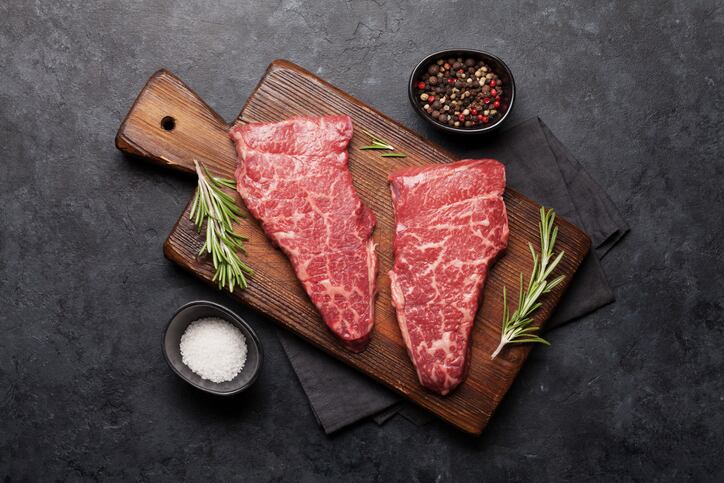Researchers who conducted this review said essential oils have anti-microbial properties from its bioactive components such as phenolic acids, terpenes, aldehydes, and flavonoids, and could act as a natural preservative.
“In recent years, consumers have shown an increasing concern about the use of synthetic chemical preservatives. There is an increasing tendency in using natural additives including antioxidants, antimicrobials, sweeteners, and colouring agents that originated from animals, plants, and microorganisms,” they wrote.
In this study, they reviewed the potential of essential oils in mitigating or inhibiting the growth of a bacteria, L. monocytogenes in meat and meat products.
The findings were published in the Frontiers in Nutrition journal.
Essential oil against bacteria
In this study, researchers focused on L. monocytogenes, a common pathogenic bacteria found on meat and meat products.
It causes listeriosis, a foodborne illness with high rates of hospitalisation and mortality, mostly through consumption of contaminated meat.
L. monocytogenes has the ability to survive and grow in both raw and cooked meat over a wide range of temperatures (1 to 45°C), pHs (4.3 to 9.4) and at water activity with a value of 0.92 and above.
L. monocytogenes can tolerate low-oxygen conditions, nitrite, and high salt content, where meat products are an ideal carrier.
Thermal treatment, high-pressure processing, use of antimicrobial additives and synthetic preservatives are some methods to eliminate L. monocytogenes.
However, researchers said consumers were increasingly more aware of the potential adverse effects of synthetic preservatives, and seeking natural and safer options such as essential oils.
Essential oils are volatile oils naturally found in plants including buds, flowers, seeds, leaves, roots, peels, fruits, and barks.
Worldwide, there are about 3,000 essential oils known, of which 300 are commercially utilised in cosmetic (cream, lotion, perfume, soap), food (beverages, baked foods, pudding), and pharmaceutical industries.
Examples of essential oils tested against L. monocytogenes in beef, sausage, ham and chicken include oregano, nutmeg, clove, thyme, rosemary , cinnamon and others. The essential oils were found to reduce L. monocytogenes count or eliminate it entirely in the meat products.
According to the researchers, essential oils have antimicrobial activities against a wide range of microorganisms, although its mechanism has not been completely elucidated.
“The antimicrobial activity of essential oil may be due to the possible penetration of it through the bacterial cell wall, causing leakage of ions and other cell compounds, and when the leakages are more than the limit, cell death occurs.”
Other mechanisms of essential oils include the ability to change fatty acid profile, and increase permeability of cells.
“Generally, the interaction of essential oils with cell membranes of bacteria can be effective in preventing bacterial growth,” researchers wrote.
Limitations
This study showed that essential oils could be potentially used as a replacement for chemical preservatives in meat and meat products to mitigate or inhibit the growth of L. monocytogenes.
However, its main drawback is the strong aromas, causing off-flavours. This limits its use in higher concentrations, which could mean a lower antimicrobial activity.
Khaleque et al reported that using clove essential oil (10%) could inactivate L. monocytogenes in ground beef meat, however consumers did not accept the meat due to the strong flavour of clove. It was suggested that a combination of other preservatives such as acid or salt with clove essential oil and proper storage condition would be useful in reducing the unfavourable sensory effect of clove essential oil.
Researchers suggested other approaches such as incorporating essential oils into edible films and coatings, microencapsulation or nanoencapsulation of essential oils, or combining with other preservation and storage methods may be more efficient in inhibiting L. monocytogenes growth and ensuring the safety and quality of meat and poultry products, which should be studied in future investigations.
Source: Frontiers in Nutrition
https://doi.org/10.3389/fnut.2020.577287
“Potential Application of Essential Oils for Mitigation of Listeria monocytogenes in Meat and Poultry Products”
Authors: Mojtaba Yousefi, et al.




